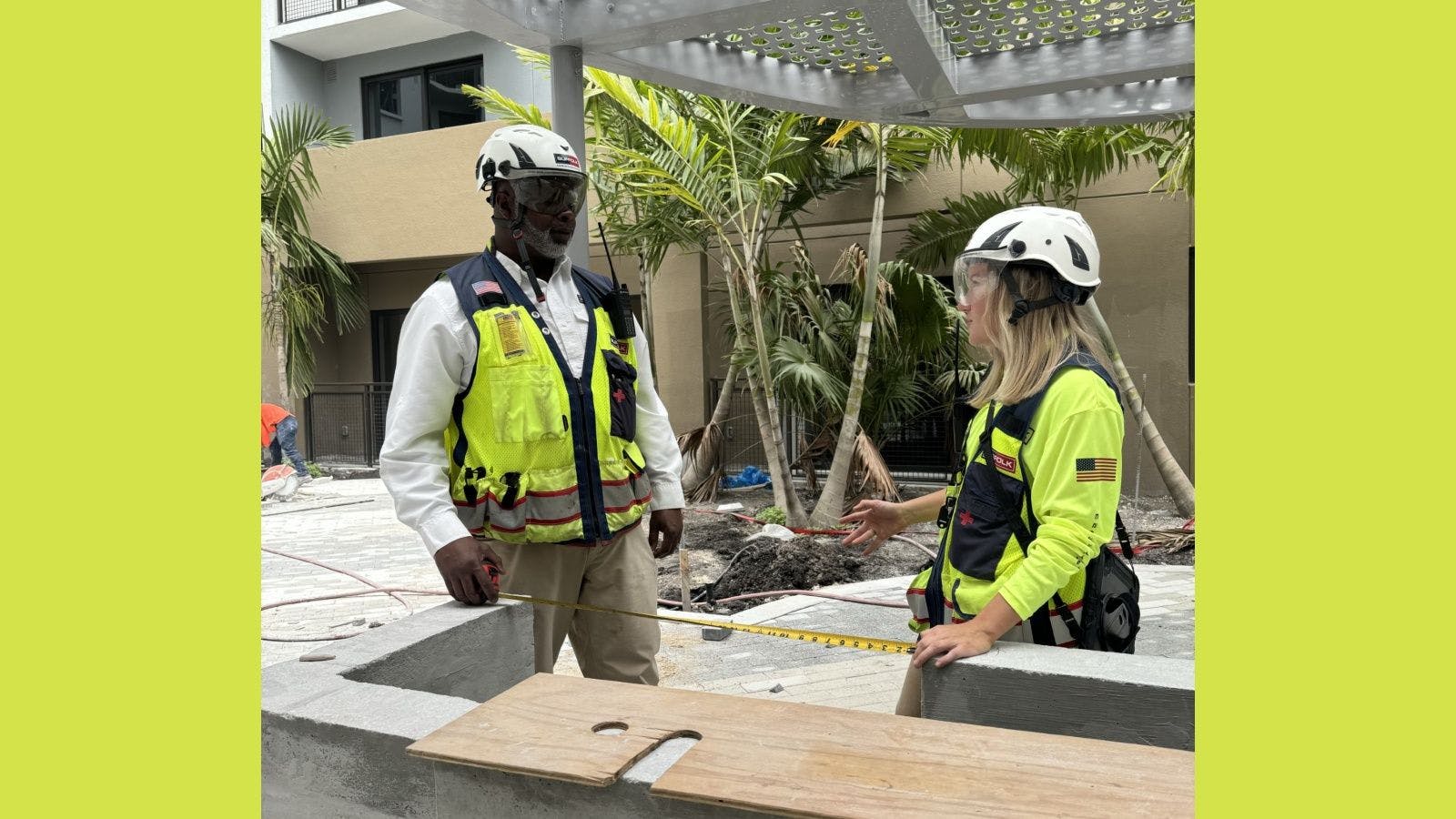
Revamp Your Employee Training Program to Attract the 2024 Workforce
2023 has been the year of the labor shortage for the construction industry, caused and continued by a multitude of factors, including early retirements and low levels of younger generation workers who possess the skills to fill the employment gaps.
That’s why implementing a systemized, ongoing training process is crucial heading into 2024. That means providing your employees the tools not only to learn a specific job but to build a long-lasting career in the industry.
TRAINING AS A RECRUITMENT/RETENTION TOOL
One way to help recruit and retain young workers is for companies to invest more in their own education and training programs. Training–or lack thereof–is a good place to start when troubleshooting the labor shortage afflicting companies in numerous industries. Many people who leave jobs do so because they were never properly trained. And many people who are looking for new jobs or to advance in their current ones don’t have—nor do they feel they can acquire—the skills necessary.
Leaders in the construction profession and other fields must be mindful to retain their current workforce and its skillset. To do so, it is vital that workers are trained on an ongoing basis and in ways that are effective and conducive to long-term employment, thus giving companies the best chance of consistent, long-term growth.
Effective training is about more than simply teaching skills; it is about investing in your people and culture. The construction industry is in the building business, but also the people business. Companies comprise many people, personalities, goals and lives, so investing in fostering those people—whether seasoned or rookie—on and off the jobsite is paramount for both recruitment and retention. If you do, those people will stay and grow with your company.
With nearly one in four construction workers older than 55 and nearing retirement, the need for an influx of skilled young workers can’t be overstated. Creating employment and growth opportunities through company training programs paves a clear career path for young employees to follow. It gives the employees confidence that the company believes in them and is investing in their future with the company. Data shows, unsurprisingly, that professional development and growth opportunities are important to attracting a younger workforce.
In today’s competitive hiring environment, construction companies can enlarge their candidate pool by offering high-quality training programs to recruits who are serious about expanding their skills and career opportunities. Young workers without experience in a specific area of construction, but who truly want to learn, can benefit–and the company can as well–from on-the-job training. A larger pool of recruits allows companies to focus first on personality fit and then on building skills. As the team grows, those who are motivated by growth opportunities will emerge as leaders and workers who can expertly handle numerous tasks.
In addition to offering employment and growth opportunity, designing training programs around video and digital components will prove attractive to Gen-Z, which has grown up in the age of technology. Implement a system that is mobile-friendly and comprehensive, yet easy to use for all generations.
CREATING AN EXPERIENCE
The foundation of any business is the experience you create for the customer. That is why customer experience and service should be a component of any company training program.
Over the long-term, your employees are not just workers, but experience creators. Company leaders and their employees, regardless of industry, are creating an external experience for their customers and an internal experience for themselves. Your workforce is having an experience when they come to work and interact with each other. They want to work with people they like, to learn from them and grow with them.
To achieve the long-term career sought by future construction leaders, training must be done correctly. And training done correctly never stops. A business might train its employees for six to 12 weeks and release them into the industry. But then one, two, three years later, is that training being continued? Being built upon? Consistent and progressive training is a company’s investment into its workforce and employees’ investments into themselves.
IMPROVING SAFETY
Many hazards exist on a construction site that can lead to serious injury or death if proper precautions aren’t taken, and maintaining consistent safety training can help significantly reduce preventable accidents and injuries.
Younger and newer employees present higher safety and quality risks due to their inexperience. And the high accident rate of new hires shows how important it is to start their safety training before they start work, then provide them with refresher training throughout the year. According to the Bureau of Labor Statistics, about 60% of all construction injuries occur in a worker’s first year of employment.
Your team should receive general safety training that covers equipment on your site as well as the labor they are expected to perform. In addition, they should receive specialized training before taking on new and more advanced responsibilities. Consider how company-required certifications can help your crew be safer. Using a certification-management system shows which employees are qualified to operate certain types of equipment.
In today’s challenging recruiting and retaining environment, diligent and ongoing training is essential in the construction industry. It improves efficiency, quality and safety, leads to career paths and continuity in the workforce, and makes companies more competitive as well as more attractive to prospects.
Related stories








